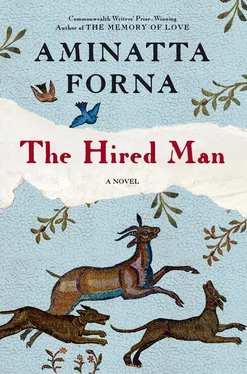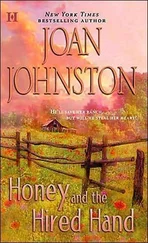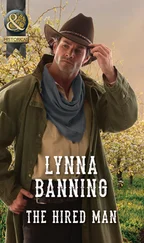‘There’s something under here,’ she replied. ‘It looks like a mosaic.’
Gost lies upon a polje of karst limestone. Thousands of years of sediment made for good farming, and the soil is what kept Gost rich in grain all those years. They say that there are lost rivers, limestone caves and sink holes. I don’t know about that; I can only tell you that if you stand in the middle of Gost facing north and raise your head to look up into the hills, you will see how the river banks more steeply on one side than the other. The river starts as a spring outside a hamlet a few kilometres from Gost and it flows north, away from the sea, through our town, passing the old mills of Gost, cuts through the hills and eventually flows into a large lake some several hundred kilometres north-west of here. Visible from Gost is a scar of grey rock running through the green before the river divides into tributaries somewhere above the swimming hole: that is the ravine Gudura Uspomena.
Gudura Uspomena is Krešimir’s and my favourite place. The ravine is deep and we dare ourselves to climb down where the sides slope. A rock projects out beyond the others; we inch along it and lie on our bellies, peer over the edge at the dizzying drop, grow weak resisting the pull of the fall. We might climb down the slope and stay in the ravine for hours, a place nobody can find us. In the summer we swim in the swimming hole, leave our clothes in bundles to hop across the rocks, skinny and pale, and dive into the water, which is freezing all year round and leaves us gasping and winded. We dry off in the sun and then leap back into the water. Later we climb down to the waterfall below the swimming hole and hold our hairless dicks under the rushing water until our stomachs convulse with a strange new pleasure.
Other times we build encampments in the perpetual twilight of the pine forest, where we hoard stolen food and puff on cigarettes and later take turns drinking from bottles of rakija , with grimaces and coughs. Once we turn to alchemy and make our own: cheap grappa into which we stuff wild fennel, thyme and unknown berries we find in the ravine and which may or may not be poisonous. We bury the bottles and dig them up too soon and spend a night puking.
Once, under the influence, I challenge Krešimir to a dare. Stripped naked and on the count of three we race through the trees. You see we are hunters, fascinated by night vision, to which we attach great importance and as a consequence manliness. The naked race is to determine who possesses the greater night vision; the winner isn’t the fastest runner, although the whole point is to run as fast as you can, but rather the one who suffers the least damage: scratches, cuts and bruises, in other words who smashes into the fewest trees.
At other times we climb the hill to play in the old bunker, just above the tree line. Of course we’re not supposed to, the bunkers are there in case of a Soviet strike. Ours is cracked and covered in moss and the inside is dark and dank, with a dripping roof and smells of rot and pee, though who exactly would climb up there to empty their bladder, God only knows.
We are twelve years old, maybe eleven. A night in the summer we persuade our fathers to allow us to sleep in the woods. My father believes all boys should be toughened up, especially me because I have two older sisters and am small for my age. Krešimir’s father hasn’t died yet and he says OK. But the pine forest is alive with activity all night and it isn’t the cry of the animals that frightens us, but the sound of car engines, the glimmer of headlights, the tramp of boots and the sound of voices.
The next day my father looks at our sorrowful faces and tells me they are most likely black-marketeers, smugglers. He asks me whether any of the men saw us. I say no. Good, he says, and he pats me on the head. Krešimir and I add our brush with the smugglers to the repertoire of happenings that will one day make us men. In the market for the first time I notice men in leather jackets who stand together in groups as though they are waiting for something. They light cigarettes and exhale smoke and frozen vapours into the air and then throw the stubs onto the ground. Better mind your own business, chief, says my father (in those days he always called me chief). He gave me a shove. Don’t forget, chief, never ask a question you don’t have to, that way you’ll live a lot longer.
Charlie, Revlon, leather jackets, videos, second-hand jeans, American tobacco, Pino Silverstre aftershave from Italy, pirated pop cassettes, chewing gum and tampons, and in the years to come: Asian porn and disposable nappies and when things get really bad: toilet paper. Some days my father brings gifts for my mother and sisters: Eve roll-on deodorant, one for my mother and another for my sisters to share, a tiny jar of night cream with a red lid and the words Elizabeth Arden for my mother. My mother puts the jar away along with all the other things she never opens. My sisters smile and kiss him. My father blushes, and escapes by slipping on his clogs saying he has things to do; he goes to his shed at the bottom of the garden where I know he reads the newspaper and smokes. Another day he and I share a bunch of bananas. When I ask him where they come from he tugs my nose and winks.
Laura worked on rescuing the mosaic. At times we worked side by side, I on the windows, she on the mosaic. She drove into town to buy a small brush and tools better suited to the job: she was curious to know what lay beneath the layer of plaster. There was plenty to do on the house, but now she had me to take care of things. We passed several hours in each other’s company, often in silence, though from time to time Laura asked me a question. ‘Are you married?’
‘No.’
‘Oh, I’m sorry.’
I asked her why she was sorry. She told me she hadn’t meant to pry. I replied that she wasn’t prying. She asked, ‘Were you ever married?’
‘No.’
‘I suppose you enjoy the freedom.’
I didn’t say anything because I didn’t know what else to say. My father and one of my sisters were dead. My mother and my eldest sister lived two hundred kilometres away, never came back to Gost and constantly urged me to move to be with them. Here I had Zeka and Kos, nobody else. I wondered if this was the freedom Laura was talking about. Laura apologised again. ‘I hope you don’t mind me saying that.’
‘It’s OK.’
‘I was just wondering, that’s all.’ Laura who speaks in English to strangers in a foreign land, but hates to be misunderstood.
Another time she asked, ‘Did you never want to marry?’
‘I never had the chance.’
‘What do you mean?’
‘I mean things never worked out that way, but yes, why not?’
Laura told me her husband needed to stay behind in England to continue running his business and because he had meetings somewhere overseas to attend, otherwise he would have come with them. She’d headed out with the children to begin putting the house in order. Her husband would follow in a week or so. After that we were quiet for a while until Laura said, ‘I think it’s a hand.’ She stood back a metre from the wall with her head on one side, one arm wrapped around her waist, the elbow of the other arm cupped by her hand. Between the thumb and forefinger of the other hand, which rested against her cheek, she held the brush. I climbed down from the ladder. The mosaic had begun to emerge. Now visible against a background of chalky white tiles were what may very well have been three fingers. These were made of green tiles. Above the hand — if that is what it was — was a row of pointed shapes composed of deep blue tiles.
‘It could be a hand,’ I said. ‘It’s hard to tell.’
‘Only one way to find out,’ said Laura.
Читать дальше












